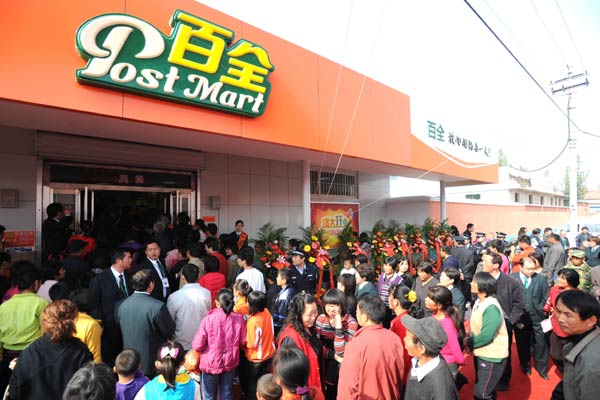 |
|
A Post Mart store has a grand opening in Shandong province in 2010.The retail supermarket chain has closed stores in Shandong and Jiangxi provinces and is subletting the stores to contractors in Henan province in a bid to stem losses. CUI PENGSEN/CHINA DAILY |
Hybrid retailer shuts Shandong, Jiangxi outlets, sublets Henan unit
Retail supermarket chain Post Mart has closed stores in Shandong and Jiangxi provinces and has sublet its stores in Henan province to contractors, as part of the efforts to stem losses from operations in rural China.
Post Mart, jointly run by China Post and US-based China Horizon Investments Group, is a hybrid retailer with strong logistical networks and international retail experience. The company, though often called the rural answer to US retail giant Walmart, has yet to establish its presence in the unique and complicated Chinese rural market.
|
 |
 |
By the end of August 2013, Post Mart had 98 directly operated stores and 6,000 franchise stores in China. The State-owned China Post specializes mostly in postal finance, delivery and logistics services.
China Horizon, the joint venture partner, had said it would invest 1 billion yuan ($162 million) on a 25-year lease of 10,000 China Post retail stores.
Liu Wei, deputy general manager of China Horizon Investments Group, told China Daily on Monday that they have closed the directly owned stores in Jiangxi and Shandong provinces due to persistent losses. Stores in Henan were contracted out to other operators.
But Liu said they are still confident in their strategy and operations in China.
"We are still seeking positive directions," Liu said, referring to the change in the operational model as an effort to cut losses. "Closing directly operated stores is only a temporary move. We will continue to adopt self-run models, but we have to find a better and more mature model," she said.
A scattered population, lower consumption and chaotic distribution channels filled with counterfeit products have slowed modernization of the retail businesses in rural China.
